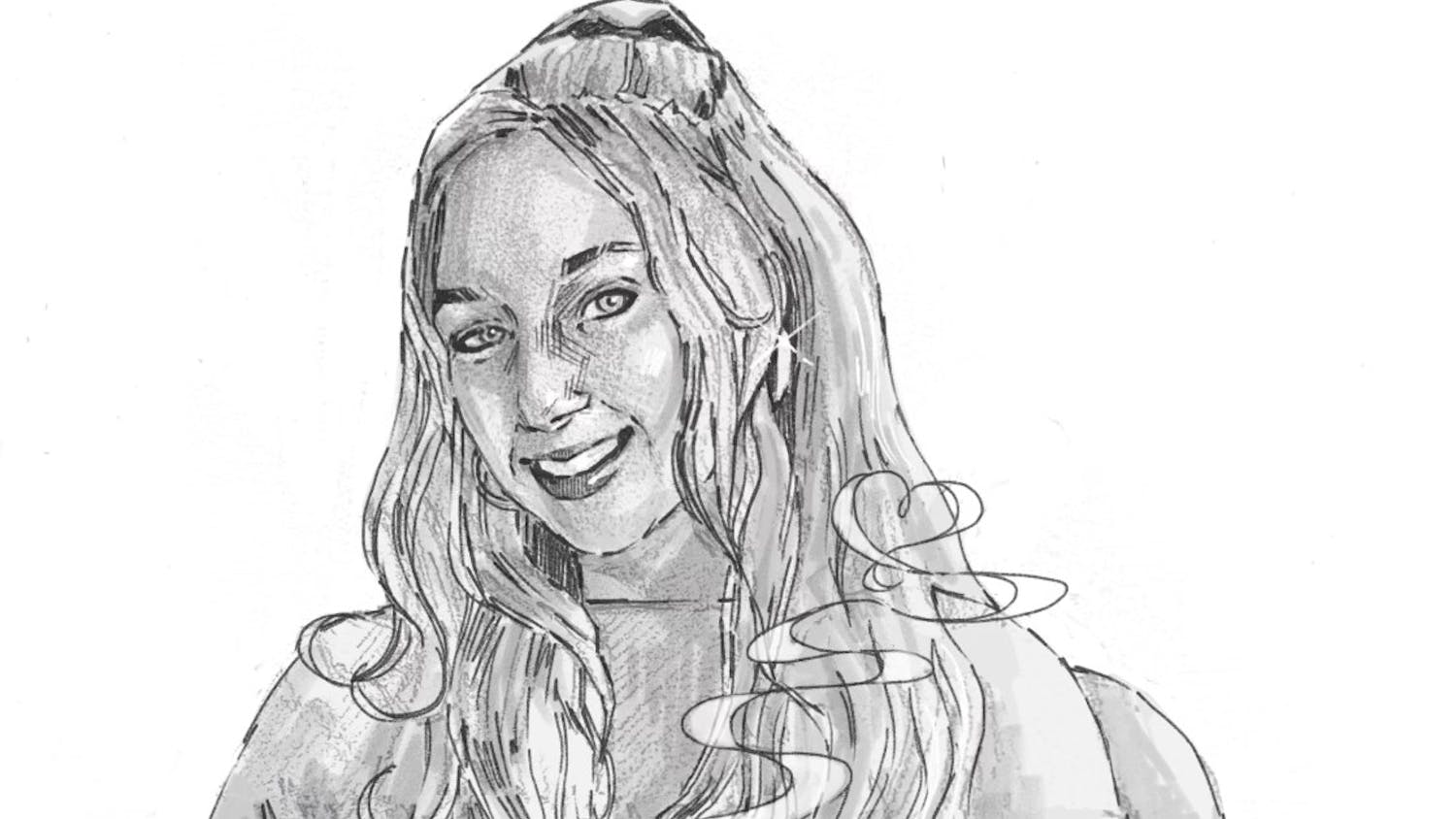The story of John Fiocco Jr. became something far more than a story for the Signal staff last week. As we foreswore classes and homework to follow the news as it broke and to keep our Web site, signal-online.net, up to date, we found ourselves in an increasingly precarious position: as Fiocco's fellow students, we were forced to balance the fear and uncertainty that took hold of the College community at large with our professional responsibilities as journalists to cover the story.
And as we covered it - elbowing around the camera crews, news vans and reporters camped out on campus like harping crows starting last Tuesday - we realized that, in terms of professional role models, we had few.
Our staff is comprised mostly of journalism students; we have been taught to believe in the nobler merits of the profession, the unflagging pursuit of truth. For the reporters who have haunted this campus since the investigation began last week, truth gave way to sensationalism and scandal.
In the end, we found our professional convictions shaken. The reporters we have always admired for their supposed determination in pursuit of the facts have proven themselves nothing more than vultures picking over carrion, with no consideration for the parties who have sincere emotional investment in their stories.
As we have continued to cover the story, we have yet to see the pressing public interest - how does this story affect anyone beyond Fiocco's family and the community bounded by Metzger Drive. Sure, we're all aware of that sick, old journalistic credo "If it bleeds, it leads," but this story quickly became a monster.
While the Fiocco family mourned the disappearance of their son, while students feared for their safety, reporters shoved mics in their faces, asking "What do you think happened to John Fiocco," or chastised him for having what a television broadcast referred to last week as a "dark side" that enjoyed drinking and partying.
Indeed, many of the pictures - swiped from his facebook.com profile - we have seen of Fiocco on the nightly news have been of the freshman smiling with a bottle in his hand. This when there are over 80 pictures on his profile to pick from. Instead of giving the boy a human face, they have painted a caricature: an out-of-control drunken freshman. They refuse to believe that Fiocco was like you, he was like us - and that what happened to him, whatever that may be, could just as easily have happened to any of us.
We at The Signal have gotten to taste the sweet delicacy known as misquoting. The Times of Trenton, in a story on Monday, implied that a member of our staff believed the College administration had been responsible for removing inserts we had placed in last week's print edition. Likewise, The Trentonian claimed that one of our staffers asked "if a killer is loose on campus," at last Friday's press conference.
Neither of these claims is true. While our own staff replaced the inserts because they were no longer up to date, and the question at the press conference was somewhat more elegantly phrased, rational explanations and legitimate questions don't sell newspapers.
The talking heads of the 24-hour news cycle have even picked up on the Fiocco case. Greta Van Susteren discussed the case with shamed ex-LAPD investigator Mark Fuhrman last week on her FOX News television program.
The Signal staff was even naive enough to accept an invitation to appear on Nancy Grace's show on CNN Headline News Monday night. We hoped it would give members of our staff the chance to do something good, something that almost no other news outlet had done thus far - present the facts, and give us, as students, an opportunity to elucidate the effect the rampant media speculation has had on our campus.
But we were duped. Instead, the show took this missing persons case and came up with conspiracy theories. A forensics "expert" said that he was almost sure that Fiocco was pushed headfirst down the trash chute. Other panelists surmised that Fiocco could have been hazed or drugged before getting pushed down the chute.
Our staff, standing in the rain outside Loser Hall, was given five seconds of camera time to answer simple questions about where freshmen live on campus and the size of the trash chute. They were forced to listen to conjecture rather than speaking from their own knowledge of the case.
It was clear that no one on the show's staff had done their homework: during a commercial break, our staff members told the CNN reporter that was standing with them that there had been no official confirmation from police that Fiocco had ever been in the trash chute. He responded like he'd had no idea.
Grace herself was no better - asking loud questions about how a landfill worked and agreeing with every caller's personal theories about the case. She even insulted one of her guests who refused to speculate on the case, saying that we, as human beings, have "the biggest brains in the universe," and that we should use them to draw conjecture.
But conjecture has not helped to find John Fiocco's whereabouts, sensationalism has not aided investigators in figuring out what happened to him that night a week and a half ago when he was last seen, rumors have not helped his family and friends deal with the grief that is now their gravity.
These things have, however, left many of us at The Signal wondering if we're pursuing the right profession, because the more we've witnessed, the more it seems like this field we have believed so fervently in requires the sacrifice of something far too precious: our humanity, our souls.






